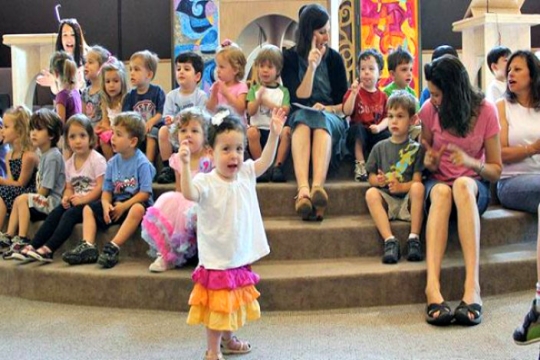by Amy Asin and Rabbi Esther L. Lederman
On May 5th, the URJ will launch applications for a new set of Communities of Practice (CoPs). Topics will include:
- Building a Brand: Excellence in Reform Movement Early Childhood Engagement
- Creating Connected Communities for Families with Young Children (for congregations without Early Childhood Centers)
- Strengthening Israel Engagement in your Congregation
- Pursuing Justice: Becoming a Community of Action (with the Religious Action Center)
- Finding the Sacred in the Mundane: Reimagining Financial Support
- Engaging Congregants: Small Groups With Meaning
- Ready to take innovative action – small steps or large ones, depending on your congregational capacity – in a particular topic area addressed by one of the new CoPs;
- Interested in learning how to facilitate change in your congregation – in the specific topic area and overall;
- Interested in learning from experts in the field and receiving support from URJ staff;
- Seeking the wisdom and partnership of congregations facing challenges and goals similar to yours; and
- Looking for a project that will promote leadership development and partnership among congregants, clergy, and other professional staff members.
Related Posts
Image:

Building Capacity for Change in Congregational Education through Communities of Practice
Our work has revealed to us several key principles about building capacity for leading change in congregational education.
Image:

Focusing on One Topic of Congregational Life Can Be a Game-Changer for Your Community
If your congregation spent 12-24 months focusing on one topic of your congregational life, could it transform your entire community? If you decided to really delve into engaging baby boomers or figuring out how to focus on social justice issues, could it be a game changer for your congregation? This year, we’re excited to launch four new Communities of Practice, and applications are open through May 9 th, 2016.
Sacred Giving: How Reform Congregations are Reimagining Financial Support
Nearly every congregation today faces the challenge of trying to increase or stabilize revenue, so it’s no surprise that in the last few weeks alone, the Jewish press published three separate pieces on the subject: eJewishPhilanthropy shared an overview of the changing landscape and what that may look like for particular synagogues. They explain the traction this issue has gained in recent months, calling on the expertise of researchers and advocates for change. In “The Case for Pay-What-You-Can Synagogue Dues” on Jewish parenting site Kveller, one blogger wrote a personal reflection about the many factors that families consider when weighing the cost and benefit of joining a synagogue – and why the potential upside for congregations seems worth the risk. The Sun-Sentinel recently reported that Temple Beth Orr of Coral Springs, FL, became the first congregation in South Florida to adopt a voluntary dues commitment model. And that’s not all.
